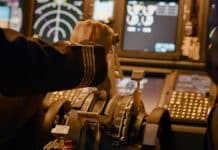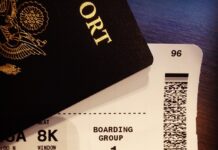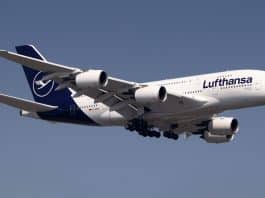The holy grail of eco-friendly and sustainable transport, the electric plane is for many the next great revolution in air transport. But is it realistic ?
The electric plane already exists
For some, the 100% electric plane is a utopia, and yet it exists and flies! Of course everyone has heard of Solar Impulse but it is more of a research and awareness project to prove that it is possible.
Closer to an industrial logic, at the last Paris Air Show, the Israeli startup Eviation Aircraft presented an electric plane capable of carrying 9 passengers at 450 km/h over a distance of 1000 km. First flight in 2022.
EasyJet is working with Wright Electric on an aircraft that could see the light of day in 2030 and would be capable of operating on routes of 500 km (such as London to Amsterdam).
Airbus has teamed up with Siemens and Rolls Royce to develop the E-FAN X, the successor to the now discontinued E-FAN project. First tests expected in 2020. In the meantime, the E-FAN had already successfully crossed the Channel.
Boeing, through its investment fund dedicated to startups, has invested in Zunum Aero. The aircraft will not be all-electric but hybrid, at least initially, and will be able to carry 12 passengers over a little more than 1,000 km with an operating cost at least 60% lower than that of traditional aircraft of similar size. First flight expected “in the early 2020s”.
But these are individual and even national initiatives. Northern European countries have decided to take a more global and collaborative approach.
Nordic countries create the Nordic Network for Electric Aviation
To address the issue in a more global way and develop synergies, the Nordic countries through Nordic Innovation (a regional organization with specialized initiatives in sustainable development) have created the Nordic Network for Electric Aviation (NEA). Its objective is to federate all initiatives towards the creation of a 100% electric aircraft.
In addition to research organizations, the initiative also brings together airlines such as SAS, Finnair, Icelandair, Air Greenland and Braathens Regional Airlines. If the presence of airlines gives a very concrete orientation to the thing, one can be surprised by the absence, today, of a real industrial partner in the members of the program.
For the moment, as we can see, we are mostly talking about small jets. Can we one day hope to see 100% electric aircrafts of superior size? This is where the real challenge lies.
The challenge of the electric plane is the battery
Airbus plans to fly 100-seat zero-emission aircraft by 2030. It’s still small but it’s going in the right direction, and 2030 is already tomorrow. But to go to the next level, the challenge is not so much the engine as the battery.
In concrete terms, if we wanted to imagine a 100% electric Airbus A320 capable of transporting 150 people, it would take 150 tons of batteries, whereas the weight of an A320 at takeoff, including fuel, is 70 tons. In other words: it will never take off as it is.
There is also the question of the metals used in the batteries: rare metals that would have to be extracted in large quantities, even if research is progressing to replace them with metals that are both more common and less polluting.
Others also mention the fuel cell as an alternative.
Hybrid, waiting for better
While waiting for the 100% electric aircraft to become an industrial reality, it is the hybrid model that is making its way, nibbling away at the fuel needed to operate the aircraft’s various systems.
A recent aircraft like the B787 now uses electrical energy for things like braking, de-icing or towing the aircraft on the runway.
In any case, while waiting for a major technological leap forward, the next generation of medium-haul aircraft, the successor to the A320 and B737, which should see the light of day around 2035, will only be partially electric.
Photo : Airbus E-FAN by Ryan Fletcher via Shutterstock





















